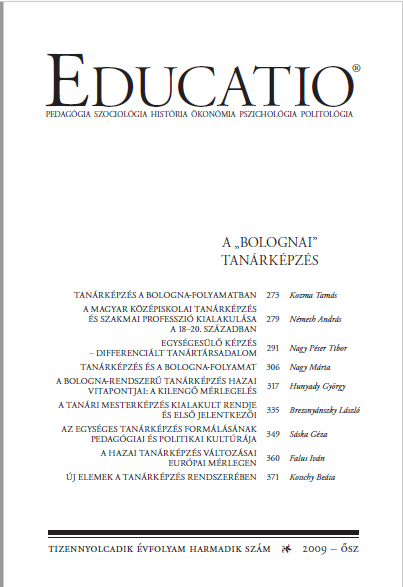Az egységes tanárképzés formálásának pedagógiai és politikai kultúrája
The Educational and Political Culture of Creating a Unified Teacher Training System During the Bologna Reform Process
Author(s): Géza SáskaSubject(s): Education, School education, Higher Education , Educational Psychology, Evaluation research, Sociology of Education
Published by: Akadémiai Kiadó
Keywords: Educational and Political culture; Bologna reform process; Teacher; Education;
Summary/Abstract: The culture of teacher training for mass education and for secondary schools is completely different in terms of the type and content of a school’s curriculum. The teacher training system for academic secondary schools has applied several science-based disciplines at the university level. The merit and value of school subjects has come precisely from this scientific approach. In contrast, the value of college-level teacher training for mass education has focused on the “needs of the pupil”, which was further helped by the use of psychology. In the Bologna reform process, the anti-scientific, pedagogical-psychological professional lobby group, supported by ministerial policy, saw that the college-level teacher training values and structures were incorporated into the university, master level system – albeit amid opposition by representatives of traditional science. In the name of mass education, this antielite group claimed an overwhelming victory – and this created a new culture of public education within the context of organizational transformation. Upon being trained in the newly-created system, teachers are now gradually replacing their fellow teachers, i.e. those who handle traditional science-based subjects. This progress will be analyzed step by step in this paper.
Journal: Educatio
- Issue Year: 18/2009
- Issue No: 3
- Page Range: 349-359
- Page Count: 11
- Language: Hungarian

